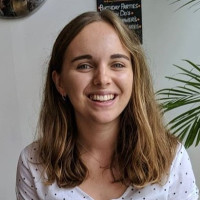There is one God in three persons, the Father, the Son and the Holy Spirit.
'The physical world is all that exists.' This statement can seem as closely-held a doctrine in our science departments as its opposite is in our churches.
Some kind of 'methodological naturalism' - a commitment to only looking for natural causes of phenomena, not supernatural ones - is necessary to science. After all, science is the study of the physical world and how it operates. We don't need science to be more than that - universities have more than just science departments, after all.
But in many science faculties, this commitment to naturalism has gone beyond just a useful way of limiting the experiments we attempt, to a full-blown atheism. The mantra becomes not just 'we'll limit ourselves to looking at the physical world for the purposes of science', but 'there is nothing beyond the physical.'
The first article in UCCF's Doctrinal Basis immediately shatters this naturalist doctrine. The physical is not all there is. In fact, the physical is not even the most real thing there is.
Ultimate reality - the one thing that underpins everything else - is the existence of the triune God. Father, Son and Spirit, three persons but one being, He is more fundamental to reality than matter itself.
God is a bigger deal than the universe. Everything else finds its meaning in relation to Him. As one writer puts it:
‘True knowledge of any thing, whether quasar or quark, person or particle, requires a theological orientation – a provisional grasp of its relationship to God in Christ and the history of his revealing and reconciling work. Without a grasp of this relation, many true things can be said of it, but they will inevitably be to some extent peripheral and ultimately misleading. The ultimate meaning of the creaturely lights is the service of God.’ [1]
Science is often elevated into god-like status in our culture. According to the philosopher Bertrand Russell, 'What science cannot discover, mankind cannot know'.
But science is not the most important, or most powerful, or most knowledgable thing in our world. God is. All things, science included, exist for him.
[1] Ian W Payne, Wouldn’t You Love To Know?

